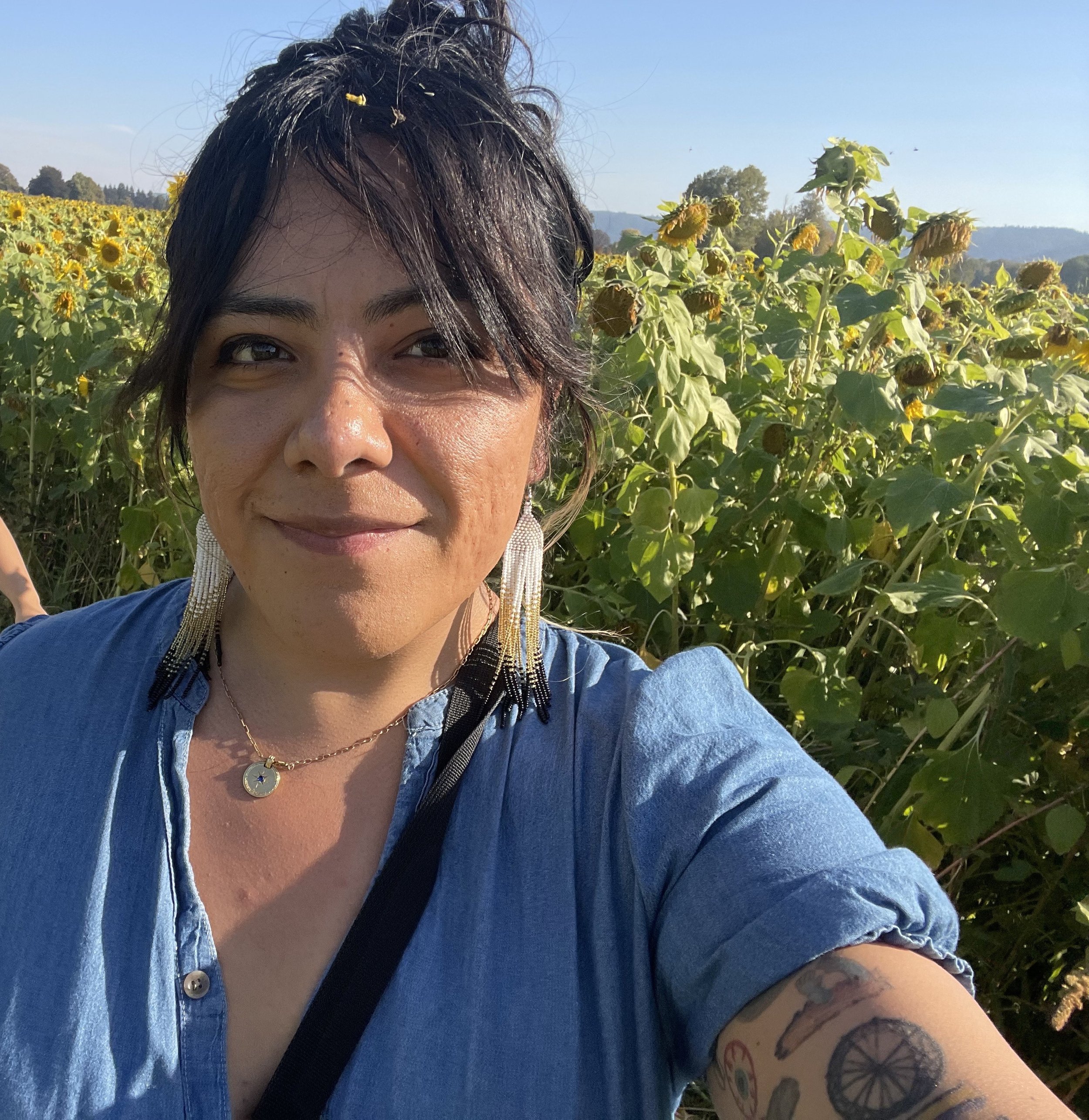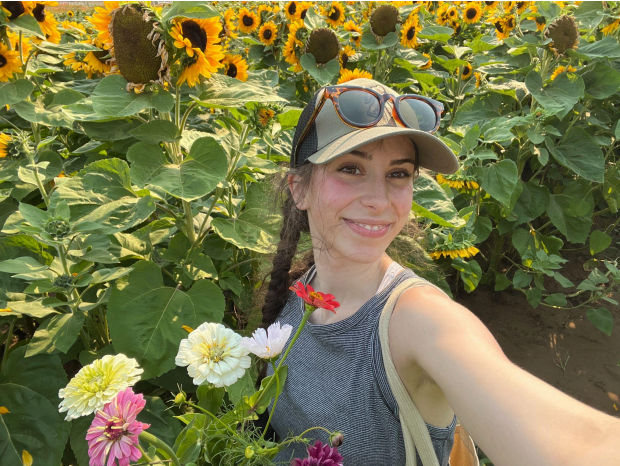Who We Are
The Ballhorn Lab has a great team of researchers!
Meet the PI
Dr. Daniel J. Ballhorn
My research focuses on the functional ecology of multispecies networks. Specifically, I am interested in how plant-associated microbes affect the chemistry of their host plants and how these microbe-mediated traits affect higher trophic levels in an ecosystem context. I further study how changes of the environment – such as climate change, increasing soil salinity, and invasive species – influence ecological communities. In this line, I am also working with local Indigenous Tribes to address problems they are facing as a result of the degradation of their natural environments. As a biology professor, my goal is to help young scientists from diverse backgrounds find their passion in research and develop the skills they need to succeed in an increasingly challenging world. Outside of research, I like to spend time outdoors with family, friends, and my dog, I try to improve my skills as a gardener, and I am (somewhat unsuccessfully…) training to become a better runner.
Graduate Students
-
Nathan Stewart
PhD Candidate
Nathan is a lifelong Oregonian and mycological enthusiast. His work revolves around the bacterial communities associated with mushroom-forming fungi in Oregon’s conifer forests. Of particular interest is understanding how different mushroom hosts influence the bacterial populations that live within their fruiting bodies and associate with their hyphae in the soil, and evaluating how the presence of bacteria affects the fitness and metabolism of their fungal hosts. More broadly, Nathan is interested in the mechanisms by which microbiome hosts exert influence over loosely-associated assemblages of microbes
-

Robyn Dove
PhD Candidate - NSF Graduate Research Fellow
Robyn is a National Science Foundation Graduate Research Fellow (NSF GRFP). She was formed in Eagle River, Alaska and moved to Portland after obtaining a Bachelor of Arts in Environmental Education from Western Washington University. She is fascinated by plant and soil biology and she spent several years as an urban farmer in Portland before joining the Ballhorn Lab to earn her PhD. Currently, she is studying the composition and variation of the root nodule microbiome of the invasive legume, Scotch Broom (Cytisus scoparius) and the native actinorhizal plant, red alder (Alnus rubra). Her research is inspired by a desire to contribute to more sustainable stewardship of agricultural and ecological systems by considering the plant-microbe perspective.
-

Erica Hernandez
PhD Student
Erica Hernandez is a PhD student interested in plant-microbe interactions. Using silvery lupine and other lupine species, she will be working on assessing comparative diversity of non-rhizobial root nodule inhabitants and identifying species of beneficial bacteria responsible for mitigation of heat and drought stress in lupine (Lupinus spp.)
-

Aparna Uphadyay
PhD Student
Aparna’s work aims to explore the quantitative variability of oregonin in leaves, roots, and bark of red alder and other alder species in the Pacific Northwest. Aparna is further studying the impact of environmental and ontogenetic factors on the expression of oregonin in plant tissues. This research has potential to provide valuable insights into the mechanism underlying plant defense strategies, symbiotic relationships, and response to environmental stressors, ultimately contributing to our broader understanding of plant ecology and ecosystem function.
Undergraduate Students
-

Yamini Singh
Undergraduate Researcher - Biology Thesis Program
Yamini is an international undergraduate biology student from India, currently enrolled in the Biology Undergrad Thesis Program. She is deeply interested in microbial symbiosis and is focusing her research on the diversity, phylogenetic relationships, and bioactivity of microbial symbionts associated with red alder (Alnus rubra). A key aspect of her work involves investigating the fungal endophytes that co-inhabit Frankia root nodules in red alder, with a particular emphasis on their potential anti-microbial activities in vitro. Yamini's research is driven by her passion for exploring the intricate interactions between plants and microbes, and her aim to contribute to our understanding of these relationships for future ecological applications.
-

Xōchitl Quetzal
Undergraduate Researcher - McNair Scholars Program
Xōchitl (so-chee) is an undergraduate biology major with a minor in chemistry. As a McNair scholar, her thesis aims to explore the effects of cultural burns on soil invertebrate biodiversity. As an Indigenous woman native to Mesoamerica, her research is guided by her passion to validate Indigenous ways of knowing as a valid foundation for research. Via the Etuaptmumk (“two-eyed seeing”) methodology, her research aims to model a dialectic approach that recognizes the 10,000 year long (or longer) symbiotic relationships formed between Indigenous peoples and their biotic environment. She hopes that considering Indigenous and western methods of historical and scientific record keeping, will provide ethnocultural data that can benefit both Indigenous and scientific communities. The acquired knowledge will foster deeper bonds between people and the natural world.
-

Gwen Baird
Undergraduate Researcher - Lester Newman Scholars Award
Gwen is an undergraduate biology major, born and raised in Portland, OR. She is interested in the ecology of parasitic plants in urban ecosystems, with her work specifically focusing on Aphyllon uniflorum, a native holoparasite thriving on Portland’s green roofs. Gwen’s research investigates the ecological and potential economic impact of this species by examining host plant damage, host range, colonization mechanisms, and potential role in supporting native pollinators. She hopes her research will inform green roof management while furthering our understanding of the complex species interactions that shape urban plant communities.
Alumni
-

Dr. Amanda Grunwald
PhD - 2025 Walder Foundation Biota Awardee - Postdoctoral Fellow at the Field Museum of Natural History
My doctoral research focused on understanding the influence of inselbergs (isolated rocky outcrops) on bat diversity in Afrotropical ecosystems. This work was centered around the Mbam Minkom Massif located in the Centre Region of Cameroon. We collected abundance data from sites on and near the inselberg, as well as in distant lowland forest. We applied an integrative diversity framework to assess taxonomic, functional, and phylogenetic diversity within (alpha) and among bat assemblages (beta). This research contributed to our growing knowledge of bat diversity in the region and broadened our understanding of the ecological impact of inselbergs on biodiversity.
-

Fay Pooler
M.S. - Currently teaching at Mt. Hood Community College
Fay’s masters thesis involved studying the microbial communities found within the root nodules of the invasive legume, Cytisus scoparius (Scotch broom) and the native actinorhizal plant, Alnus rubra (red alder). Scotch broom and red alder co-occur in the Pacific Northwest and are known to establish symbiotic relationships with nitrogen fixing bacteria. Her project focused on the taxonomic diversity and the similarities and differences of culturable bacterial and fungal endophytes living within the root nodules of both plant host species.
-

Dr. Jess Nettle
PhD - NSF GRFP
Jess is a passionate queer and non-binary field botanist specializing in ecological effectiveness monitoring, Pacific Northwest plant identification, and climate adaptation. Their graduate research focuses on evaluating the resilience of Oregon white oak in the Portland Metro Area with a focus on climate change. Jess is committed to advocating for equity in field science and enjoys projects involving environmental data analysis using R programming and ArcGIS. Their body of work centers around applied ecological research aimed at effective environmental stewardship of Pacific Northwest plant populations in a rapidly changing climate.
-
Dr. Emily R. Wolfe
PhD
Emily was in the Ballhorn Lab from 2016-2021 but has lingered in spirit since. Her research focused on plant-microbe interactions in the primary successional ecosystem of the Pumice Plain of Mount St. Helens. Consequently, she spent her PhD wandering around the mountain initially to characterize the fungal endophyte communities of the dominant woody species like Sitka alder and Sitka willow, and then to survey the genetic diversity of the tree hosts. After graduating, she spent two years as a postdoc at Oregon Health and Science University, applying her ecological training to study the roles of inflammatory microenvironment and driver mutations on clonal hematopoiesis in acute myeloid leukemia. She is currently a Technical Service Scientist at BioLegend, helping to troubleshoot customers’ experiments. She also teaches BI357 General Ecology at PSU as an adjunct instructor. Emily is a proud AAA hockey mom and spends most of her free time travelling between rinks. When she’s not freezing in the stands, she enjoys running in the desert sun and learning to identify plants in the southwest.
-
Dr. Adrienne L. Godschalx
PhD - NSF GRFP
Adrienne was in the Ballhorn lab from 2012-2017 and forever in her heart. During her PhD research, she fell in love with chemical ecology--the idea that chemical signals and pathways can alter the ways in which organisms, and ultimately, communities, interact. After investigating the way nitrogen fixed by endosymbiotic rhizobia altered lima bean defense systems and interactions with predators for her PhD, Adrienne studied the scents and pollinators of a dung-mimicking flower across Europe during her postdoc based in Neuchatel, Switzerland, and then spent several years coaching farmers in creating ecologically-complex compost to boost their soil and crop health as a way to transition away from agrochemical reliance. Adrienne is perpetually curious about what it means to be alive, which led her to her current role investigating the tiniest living beings as a Tenure-Track Faculty at Lower Columbia College, where Adrienne teaches microbiology on campus and online (sign up for her class as a visiting student!) Adrienne enjoys watercolor, gardening, is an aspiring surfer, and goes to hip hop class every Friday. She and her wife are building out a tiny camper van to adventure with their wild and lovable doggos.
-

Dr. Brett S. Younginger
PhD
Brett was a member of the Ballhorn Lab from 2013-2018. His research focused on fungal endophytes that colonize western swordfern, Polystichum munitum, across the Pacific Northwest. Brett leveraged amplicon sequencing and culture-based methods to draw conclusions about the patterns of colonization from dominant fungal species found living within the host fern. After finishing his Ph.D., Brett was awarded a USDA postdoctoral fellowship at Washington State University to conduct research on soil microbial communities. Shortly after his postdoc, Brett accepted a position at Genentech studying microbial communities found in the tumors of patients with colorectal and ovarian cancer. It was here that Brett was able to leverage many of the skills and tools utilized in his study of microbial communities in plants, to human systems in the study of cancer. In the Spring of 2022, Brett transitioned into a new role as a computational biologist with ESSA Pharma, a small biotech based out of South San Francisco. Brett is now the director of computational biology at ESSA and oversees many projects related to the genetic and clinical analyses of patients enrolled in several clinical trials for prostate cancer. In his free time, Brett enjoys live music and many outdoor activities in the Pacific Northwest, including backpacking, skiing and coaching his sons’ baseball teams.



